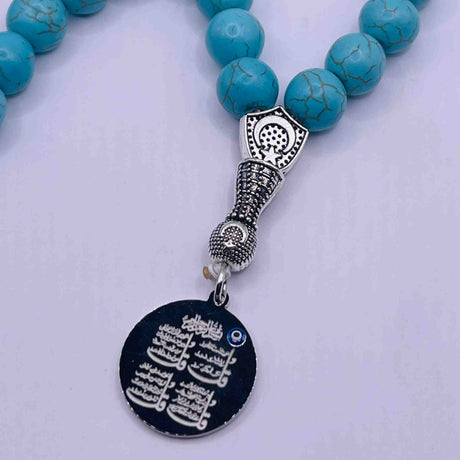Salah-ul Tasbih (صلاۃ التسبیح)
Key Takeaways:
-
Salah-ul Tasbih Significance: Understand the spiritual significance of Salah-ul Tasbih, a unique form of prayer in Islam that focuses on forgiveness and connecting with Allah.
-
Methodology Explained: Learn the detailed method of performing Salah-ul Tasbih, including the specific Tasbih to recite and the count for each position during the prayer.
-
Frequency and Benefits: Gain insight into how often Salah-ul Tasbih can be performed, its recommended times, and the profound spiritual benefits it offers, such as the forgiveness of sins and deepening one's connection with Allah.
This is indeed a beautiful and spiritually enriching form of prayer gifted to the ummah by Prophet Muhammad (PBUH). The structure of this prayer and the method of recitation are meticulously designed to foster a deep connection with Allah and seek forgiveness for sins.The prayer Sunat Tasbih is given its name because 300 Tasbih (acts of glorification or praise of Allah) are recited while performing it.
Here's a summary of the method for Salat-ul Tasbih:
-
Tasbih for the Salah:
- The phrase to be recited is: "Subhaan Allahi Wal Hamdulillahi Wa Laa ilaha illal Laahu Wallahu Akbar."
- Translation: "All Glory and Perfection is to Allah, All praise is to Allah, there is no god but Allah, Allah is the Greatest."
-
Tasbih Count for Each Position:
- After opening supplication: Recite the tasbih 15 times.
- After reciting Surah Fatiha and another Surah: Recite the tasbih 10 times.
- During Rukuh (bowing): After prescribed glorifications, recite the tasbih 10 times.
- After standing up from Rukuh: Recite the tasbih 10 times.
- In the first Sajda (prostration): Recite the tasbih 10 times.
- In the sitting between the two Sajdas: Recite the tasbih 10 times.
- In the second Sajda: Recite the tasbih 10 times.
-
Counting Considerations:
- Do not count loudly.
- Avoid counting on fingers or using a tasbih.
- It's recommended to count by gently pressing the fingers as a reminder.
- If a count is missed in any position, make up for it in the next posture.
-
Mindfulness and Focus:
- Keep the mind as focused on the Dhikr as possible.
- Let the tasbih become a means to melt your heart during the Salah.
- Reflect on Allah's blessings and favors as you recite the tasbih.
This Salat is a beautiful way to engage in Dhikr and seek forgiveness. May your prayers be accepted and bring you spiritual fulfillment.
Enhance your Salah-ul Tasbih experience with the exquisite Tasbih Prayer Beads Collection from Alhiqma. These beads, crafted from unique materials and designed with meticulous attention to detail, serve as a beautiful aid in your Dhikr practice, helping you maintain focus and count during prayers.
Selecting a Tasbih from this collection not only adds a physical element to your spiritual routine but also connects you to a longstanding Islamic tradition. The carefully packaged beads make for a meaningful addition to your daily prayers or a thoughtful gift for loved ones.
Frequently Asked Questions:
Q: What is the best time to perform Salah-ul Tasbih?
A: Salah-ul Tasbih can be performed at any time of the day or night, except during the forbidden times like at sunrise and sunset. However, it is preferred to perform this prayer before the Dhuhr prayer.
Q: How many times should the Tasbih be recited in Salah-ul Tasbih?
A: In Salah-ul Tasbih, the Tasbih – "Subhaan Allahi Wal Hamdulillahi Wa Laa ilaha illal Laahu Wallahu Akbar" – is to be recited 300 times throughout the four Rak’ats of the prayer. The distribution is 15 times after starting the Salah and reciting Sana, 10 times after Surah Fatiha, and another Surah in each Rak'at, and then 10 times during various positions like Rukuh, Sajdah, etc.
Q: Is it mandatory to perform Salah-ul Tasbih daily?
A: While it's recommended to perform Salah-ul Tasbih daily, it is not mandatory. If daily performance is not possible, it can be performed once every Friday, once a month, or at least once in a lifetime, according to various Islamic scholars and teachings.
Q: What are the benefits of performing Salah-ul Tasbih?
A: Salah-ul Tasbih is known for its immense spiritual benefits. It is said to help in the forgiveness of sins and in building a close and personal connection with Allah. It is a form of prayer that emphasizes the glorification and praise of Allah, helping devotees in their spiritual growth and mindfulness.

























